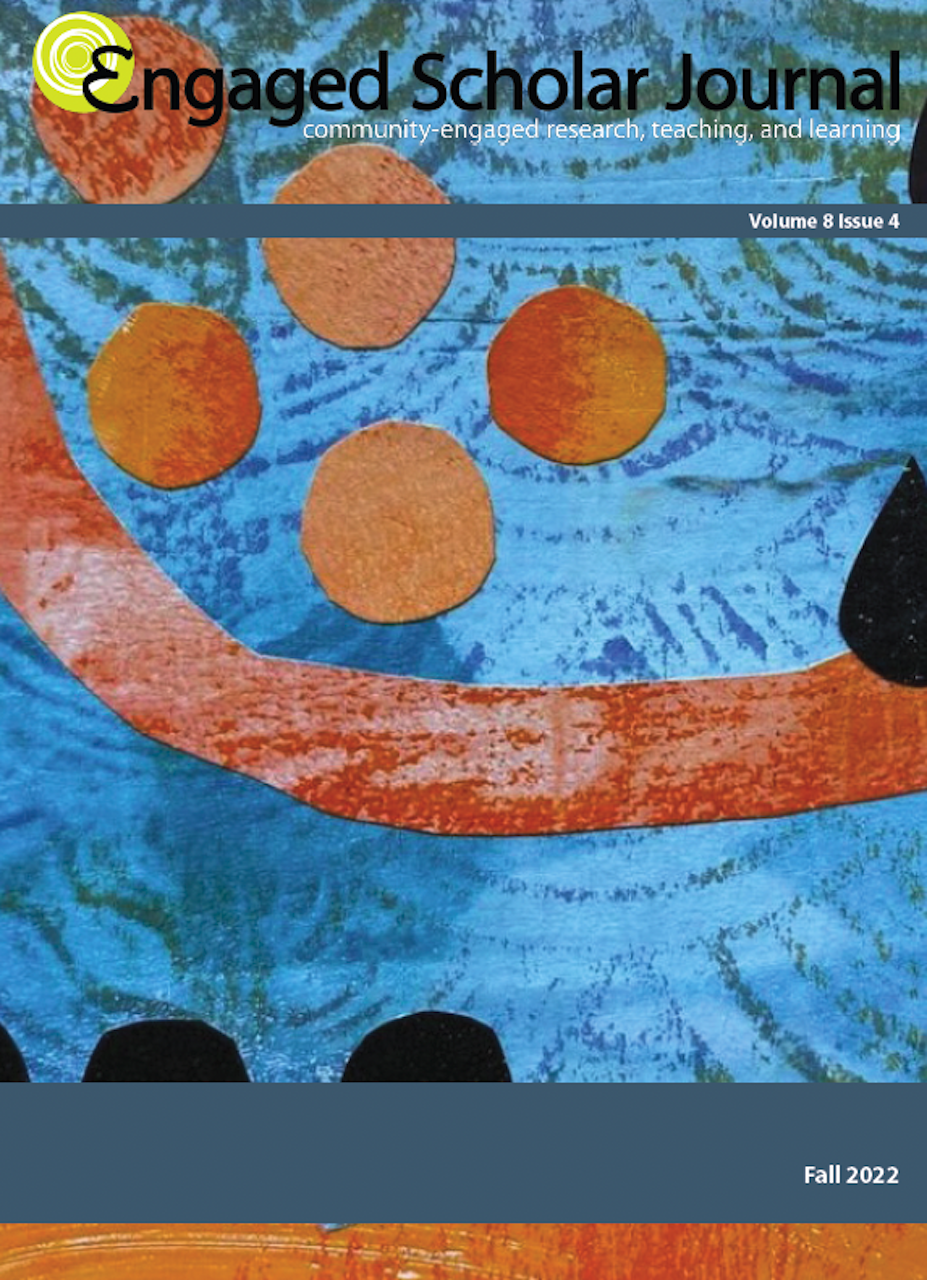Adapting Experiential Learning in Times of Uncertainty: Challenges, Strategies, and Recommendations Moving Forward
DOI:
https://doi.org/10.15402/esj.v8i4.70793Keywords:
experiential learning, higher education, COVID-19, community engagementAbstract
Experiential learning offers students the opportunity to gain practical experience with a community or industry partner in their field of study. During the Covid-19 pandemic, many workplaces transitioned from in-person to at-home work environments, and those that did not, often reduced or removed access for non-essential personnel. In this report from the field, multiple viewpoints are shared that emerged from an interdisciplinary panel on experiential learning in the June 2022 Spotlight Series hosted by Teaching and Learning Support Services at the University of Ottawa. These voices “from the field” shed light on the impact of uncertain times on experiential learning and, collectively, focus on identifying challenges, implementing strategies and good practices, and sharing recommendations moving forward.
References
Butler, M. (2022). Interdisciplinary experiential learning during COVID-19: Lessons learned and reflections for the future. Journal of Environmental Studies and Sciences, 12(2), 1–9.
Castro, M. R., Calthorpe, L. M., Fogh, S. E., McAllister, S., Johnson, C. L., Isaacs, E. D., Ishizaki, A., Kozas, A., Lo, D., Rennke, S., & Davis, J. (2021). Lessons from learners: Adapting medical student education during and post COVID-19. Academic Medicine, 96(12), 1671.
Hager, N. M., Judah, M. R., & Milam, A. L. (2020). Loneliness and depression in college students during the COVID-19 pandemic: The role of boredom and repetitive negative thinking as mediators. Research Square, 1–37. https://doi.org/10.21203/rs.3.rs-101533/v2
Kolb, D. A. (1984). Experiential learning: Experience as the source of learning and development. Prentice Hall.
Krendl, A. C. (2021). Changes in stress predict worse mental health outcomes for college students than does loneliness; evidence from the COVID-19 pandemic. Journal of American College of Health, 1(1), 40–43. https://doi:10.1080/07448481.2021.1887198
Leite, S. N., Rover, M. R. M., Soares, L., & Matheus, F. C. (2020). Losses and gains in experiential education in a university pharmacy in Brazil: Lessons from a pandemic: Innovation in experiential learning or assessment. Pharmacy Education, 20(2), 39–40.
Morris, T. H. (2020). Experiential learning – a systematic review and revision of Kolb’s model. Interactive Learning Environments, 28(8), 1064–1077.
O’Connor, E., Cianciotta, J., & Crete, D. (2021). Exploring student satisfaction of experiential learning in structured, non-renumerated placements. New Directions for Teaching and Learning, 2021(167), 23–32.
Published
How to Cite
Issue
Section
License
Authors who publish with this journal agree to the following terms:
- Authors retain copyright and grant the journal right of first publication with the work simultaneously licensed under a Creative Commons Attribution License CC BY 4.0 that allows others to share the work with an acknowledgement of the work's authorship and initial publication in this journal.
- Authors are able to enter separate, additional contractual agreements for the non-exclusive distribution of the journal's published version of the work (e.g., post it to an institutional repository or publish it in a book), with an acknowledgement of its initial publication in this journal.
- Authors are permitted to post their work online (e.g., in an institutional repository or on their website) after the publication of their work in the Engaged Scholar Journal.
- Please note that while every opportunity will be taken to ensure author participation in the editing process, due to time constraints final copyediting changes may be made before publication to ensure APA adherence throughout all submissions.




